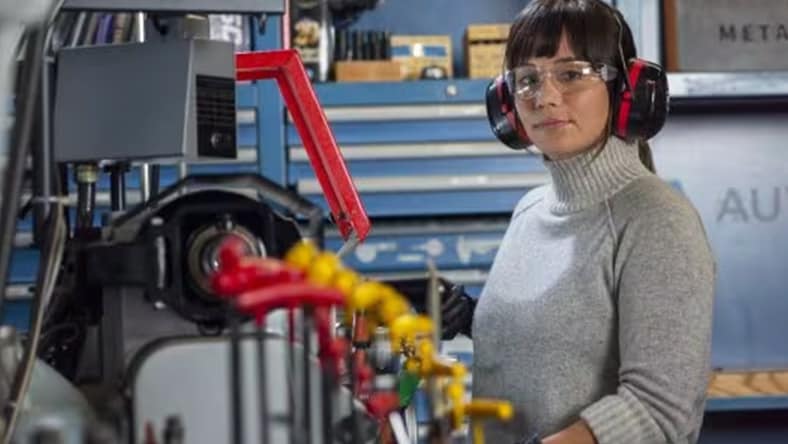& Construction

Integrated BIM tools, including Revit, AutoCAD, and Civil 3D
& Manufacturing

Professional CAD/CAM tools built on Inventor and AutoCAD
While the Covid-19 pandemic has shown how quickly companies can shift, creating essential life-saving PPE equipment overnight, in today’s episode we get down to the nitty-gritty stuff around flexibility.
More specifically, how SME manufacturers traditionally set up for high volume production can adapt to the varying quantities, configurations, and products that the mass customization trend is driving, without suffering the downtime and overheads often associated with shifts in demand.
Adrienne is a Company Director/Owner of Eurovacuum Products Ltd. She studied Mechanical Engineering at the University of Nottingham and obtained a PhD in Physics. Adrienne’s company specializes in vacuum and low-pressure compressor systems, designing, installing, and servicing vacuum pumps and air blowers in several industry sectors. With over 15 years of experience, she has gained a broad knowledge that spans a wide range of applications. This is not only theoretical knowledge but also very practical.
To complement her professional work, she is a keen promoter and champion of women in engineering, diversity, and inclusion. In 2019 she was appointed by the Royal Academy of Engineering for the role of Diversity and Inclusion Visiting Professor at the University of Birmingham. The visiting professor role at the School of Engineering furthers her commitment to undergraduate education and helps to embed inclusion into engineering curricula.
Tom Mongan, President of the Coventry & Warwickshire Chamber of Commerce & General Manager at the multi-award-winning company Subcon Laser Cutting Ltd based in Nuneaton.
Subcon is one of the UK’s largest and longest established companies that use 2D & 3D laser technology to manufacture parts. Tom has been involved in the manufacturing industry since 1973, having started his career as a Technical Apprentice at Alvis Ltd in Coventry, however for the last 27 years he has been involved with Subcon in the high tech world of lasers.
He is also the current chair of the C&W Chamber of Commerce North Warwickshire Branch, an Ambassador for the Made in the Midlands organization, a Fellow at the Institute of Sales & Marketing, a Top 100 manufacturing award winner, and also a Freeman of Coventry City”.
Episode 12
Asif Moghal welcomes Ilham Said, CEO and founder of Engineer 2 Engineer (E2E), and Richard Hagan, Managing Director of Crystal Doors to discuss the difference between customer experience and customer service.
Episode 13
What is collaboration and how can businesses promote it? This episode looks at the importance of collaboration in design and manufacturing with both good and bad stories.
All episodes
Experts from the world of design and manufacturing get together to discuss their perspectives on the challenges our industry faces, and share what they are doing to overcome them. Discover all episodes.


